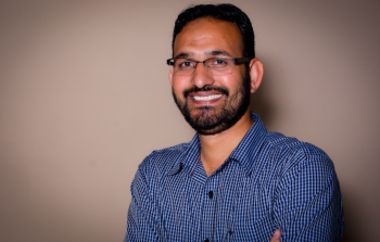PhD in Civil and Environmental Engineering
Current position: Assistant Professor at COMSATS Institute of Information Technology, Pakistan
Research focus: biorefinery, wastewater treatment
Rice is one of the world’s most abundant crops, leaving an annual residue of up to 900 million tonnes of rice straw after harvest. Muhammad is researching the development of a rice straw biorefinery (RSB), which will recover multiple products simultaneously, such as bioethanol and biomaterials like silica and biochar from residual biomass.
His ideas promote cleaner production, improve resource recovery and crucially reduce costs by consolidating various processes in one biorefinery.
2018 Selected as Member of the Global Young Academy
2016 Chinese Academy of Sciences Postdoctoral Fellowship
CV as submitted for the Green Talents award (2014):
COMSATS Institute of Information Technology, Pakistan
Research focus: bioenergy from crop residue; wastewater treatment using microalgae and wastewater treatment by plant-based biosorbents
Assistant Professor Muhammad Saif Ur Rehman’s research focus is on improving the sustainable production process of biofuel to optimise the recovery of valuable by-products, such as biosorbents, which can be used in wastewater treatment.
Applying his background in Chemical Engineering, Muhammad is currently pursuing research projects in the field of Bioenergy and Environmental Engineering. One of the most promising and advanced technologies for sustainable fuel production is the production of bioethanol from lignocellulosic biomass (LCB) from crop residue, forest wood, waste paper and municipal organic waste. However, the process still faces some techno-economical challenges. As rice is the world’s third most abundant crop, leaving an annual crop residue of up to 900 million tonnes of “rice straw” after harvest, Muhammad is researching the development of a rice straw biorefinery (RSB). “Conventionally, most of the previous research in this field has focused on the recovery of a single product from rice straw (i.e. bioethanol)”, he explains.
Muhammad’s concept of an RSB is for a systematic approach allowing the recovery of multiple products simultaneously: “bioethanol as a renewable fuel but also biomaterials (silica and biochar) from residual biomass”. This approach would allow for cleaner production, improved resource recovery and – crucially – reduce the costs by consolidating various processes in one biorefinery. “The biorefinery approach can easily be reinvestigated and scaled up in Pakistan”, says Muhammad, “because the country produces millions of tonnes of crop residues (wheat, rice, cotton, sugarcane, corn etc.) each year”. Together with an interdisciplinary team of colleagues, Muhammad is also investigating sustainable processes for wastewater treatment: a microalgal-advanced oxidation process (MAP) for the textile industry and a biochemical process using bacterial strains for tannery wastewater.
The jury lauded Muhammad’s holistic approach to sustainable development research. His projects not only have direct practical applicability but also seek unidentified areas of synergy between hitherto separate production processes to form a more efficient and altogether more sustainable process.






